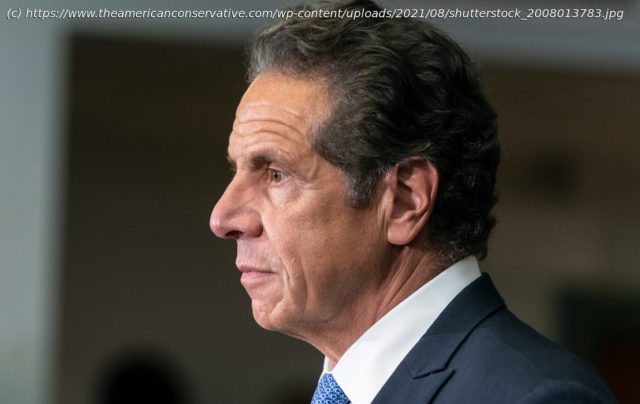Cuomo is only one more chapter in a long and depressing story.
The recent ignominious departure from office of Andrew Cuomo is the latest act in New York’s sad saga of political decline. Cuomo fell because of his private life, such as it was; the right thing for the wrong reason. The standards applied to him would have victimized, among others, the state’s 49th governor, Nelson Rockefeller. Cuomo’s manipulation of nursing home statistics would have been an appropriate ground for forcing his departure; groping was not, unless we are to make of sexual harassment law a blackmailer’s charter. The facts of these matters cannot be accurately determined, especially when time has passed, and in any event they are largely irrelevant to performance in public office, though the greatest leaders, e.g. Winston Churchill and Charles De Gaulle, avoid such hazards. Cuomo liked to throw his weight around, never more so than in his Covid-19 mandates addressed to the New York restaurant industry. One must hope that he has developed a fondness for home cooking. Why he became governor is something of a mystery; at HUD he bore more than a little responsibility for the Community Investment Act and consequent “toxic waste” recession. Like his father, he was almost purely a rhetorical politician; Mario Cuomo’s greatest service to the nation in his 12 years in Albany was in twice declining a Supreme Court nomination. The other post-World War II New York Democratic governors have likewise, with the exception of the under-appreciated Hugh Carey, been disappointing. Carey, unlike the senior Cuomo, bravely faced up to New York City’s fiscal problems. For Averell Harriman, a one-term New York governorship was but a spring-board; acting Governors Poletti and Patterson were not in office long enough to make an impression. The state’s post-war Democratic senators, with the magnificent exception of Daniel Patrick Moynihan, have also been a dismal lot, never more so than at present. For the divisive celebrities Robert Kennedy and Hillary Rodham Clinton, the New York Senate seat was always just a launching pad for higher ambitions. It is therefore appropriate to remember and reflect on the glory days of the New York Democratic party, from 1920 to 1946, when the party produced three outstanding governors: Alfred E. Smith, Franklin D. Roosevelt, and Herbert H. Lehman. Smith was an original; notwithstanding his Tammany Hall background, his administration—with its old age pension, safety, and unemployment and disability insurance laws—laid the foundation of the American welfare state, such as it is, and along with Maryland’s Albert Ritchie he provided the political foundation for the repeal of alcohol prohibition. He was also a self-taught champion of civil liberties, in his opposition to the Lusk laws and the expulsion of socialists from the New York legislature. His liberalism was of the so-far-and-no-further variety; he endorsed Willkie in 1940.






